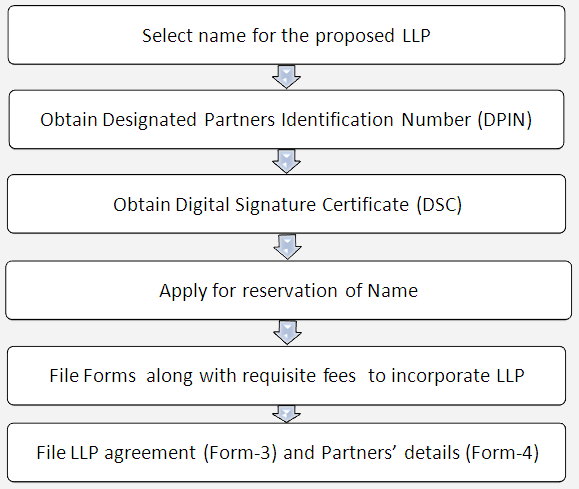LLP REGISTRATION IN INDIA
Company Registration
Foreign Company Registration
Post Incorporation Compliance
Accounting Services
What is an LLP?
Limited Liability Partnership (LLP) is a form of business organization that combines the advantages of ease of running a partnership on one hand and a separate legal entity status and limited liability aspect of a company on the other hand. LLP is newly introduced in India and is governed by the Limited Liability Partnership Act, 2008, which took effect from April 1, 2009.
LLP is a body corporate with perpetual succession and has a separate legal identity distinct from its partners. LLP is formed by any two or more persons associated for carrying on a lawful business with a view to earn profit. LLP cannot be formed without profit motive. The liability of the partners is limited to the agreed contribution in the LLP which may be of tangible or intangible nature.
What are the distinct features of LLP?
The salient features of the LLP are as follows:
- LLP is a body corporate and a legal entity separate from its partners, can own assets in its own name, sue and be sued.
- The mutual rights and duties of partners of an LLP are governed by an agreement between partners or between the LLP and the partners, subject to the provisions of the LLP Act, 2008. In the absence of any such agreement, the mutual rights and duties shall be governed by the provisions of the LLP Act.
- The LLP is a separate legal entity, liable to the full extent of its assets, with the liability of the partners being limited to their agreed contribution in the LLP which may be of tangible and/or intangible nature. No partner is liable on account of the independent or un-authorized actions of other partners or their misconduct. The liabilities of the LLP and partners who are found to have acted with intent to defraud creditors or for any fraudulent purpose shall be unlimited for all or any of the debts or other liabilities of the LLP.
- Every LLP have at least two partners and at least two individuals as Designated Partners, of whom at least one should be a resident in India. The duties and obligations of Designated Partners is as provided by the law i.e. LLP Act.
- The LLP is under an obligation to maintain annual accounts reflecting true and fair view of its state of affairs. A statement of accounts and solvency shall be filed by every LLP with the Registrar every year. The accounts of LLPs shall also be audited, subject to any class of LLPs being exempted from this requirement by the Central Government.
- A firm, private company or an unlisted public company is allowed to be converted into LLP in accordance with the provisions of the Act.
- The Indian Partnership Act, 1932 is not applicable to LLPs.
What are the benefits of LLP registration in India?
- LLP is a separate legal entity separate from its partners.
- Unlike corporate shareholders, the partners have the right to manage the business directly.
- One partner is not responsible or liable for another partner’s misconduct or negligence.
- There is no limit for maximum number of partners.
- The LLP has perpetual succession as against limited life of a partnership concern which normally dissolves upon the death of its partners.
- Unlike companies where the rights and duties of the managing personnel and shareholders is as defined by law, the rights and duties of partners in LLP are governed by the agreement between partners and the partners have the flexibility of defining their rights and duties under the agreement as per their choice.
- Liability of the partners is limited to the extent of their contribution in the LLP. There is no exposure to the personal assets of the partner, except in cases of fraud.
Procedure for LLP Registration in India
Following figure shows the detailed procedures to be followed on LLP Registration:

